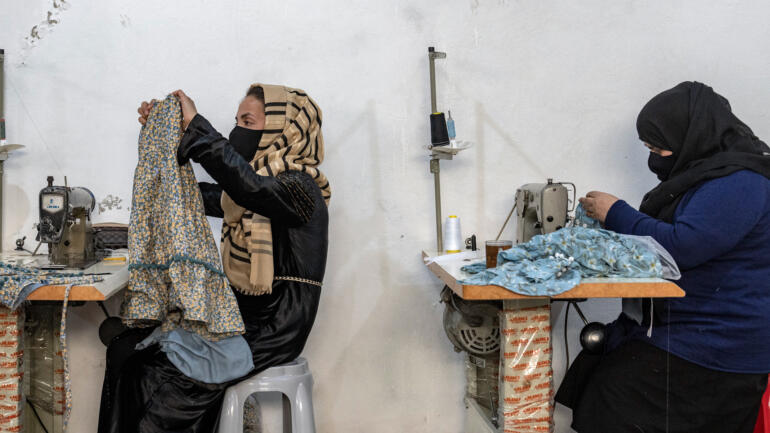Despite significant strides toward gender equality, the International Monetary Fund says labor markets around the world continue to be divided along gender lines. Female participation in the labor force is lower than male participation. There are legal barriers in place in certain countries that continue to constrain women’s economic development. What’s hindering change?
Despite progress made in recent decades, a gender gap remains in international labor markets. According to the IMF, women are overrepresented in the poorer and informal sectors of the economy. In certain countries, there also remain legal restrictions that restrain women’s economic development.
“On the issue of plural legal systems, we find that, you know, countries can have many sources of law, customary religious and sometimes they can overlap, sometimes they can reinforce each other. And to your point, sometimes they can be in conflict with one another. And one thing that we do note in the paper is that there needs to be general education and awareness raising, and you need to be able to have that political buy-in from the government – the role of civil society,” said Francisca Fernando from the IMF’s Legal Department during an IMF and World Bank spring meetings presentation. She added “We understand that laws are not just created in silos. They reflect societal thinking and so there is a tremendous amount of work that has to go to help influence those societal changes, to allow for influences in the laws.”
It has been a mainstream concept that gender equality boosts economic growth and stability. In aging societies, the IMF says women’s participation in the economy mitigates the impact of a shrinking workforce.
Females are underrepresented in various sectors, but especially in the tech sector. Women currently hold only 27% of technology jobs, according to the recruitment firm Zippia, and the percentage is lower for leadership positions.
So why haven’t women been fully empowered to achieve their full economic potential?
“Culture, culture, culture. I think this is one of the main pushbacks, I see, is they (people) are not used to having females in leadership positions across the tech sector especially. And that’s one of the things that we still see not only in Palestine but also in the whole MENA region. So, yeah, culture is one of the main issues.” Mona Demaidi, a Palestinian Tech Leader and Entrepreneur told CGTN.
Female underrepresentation in the tech space is a global phenomenon. Underrepresentation of women is consistent across top earning careers globally.
Impediments vary and include legal and cultural factors.
But all available research shows ensuring women’s empowerment in the workplace is smart economics.
For more, check out our exclusive content on CGTN Now and subscribe to our weekly newsletter, The China Report.
 CGTN America
CGTN America
